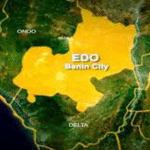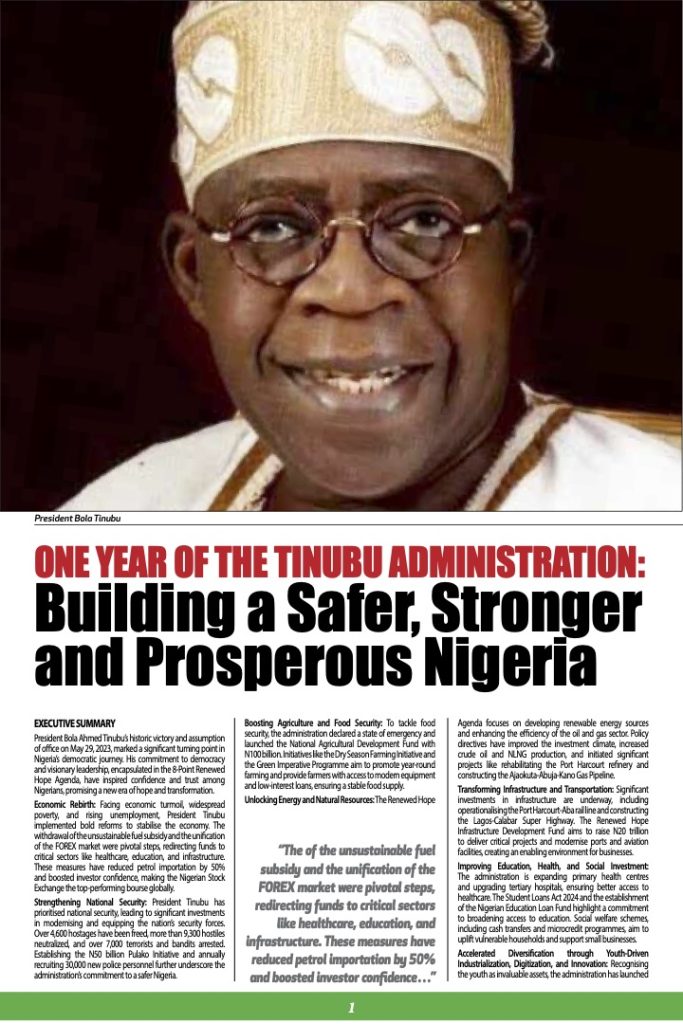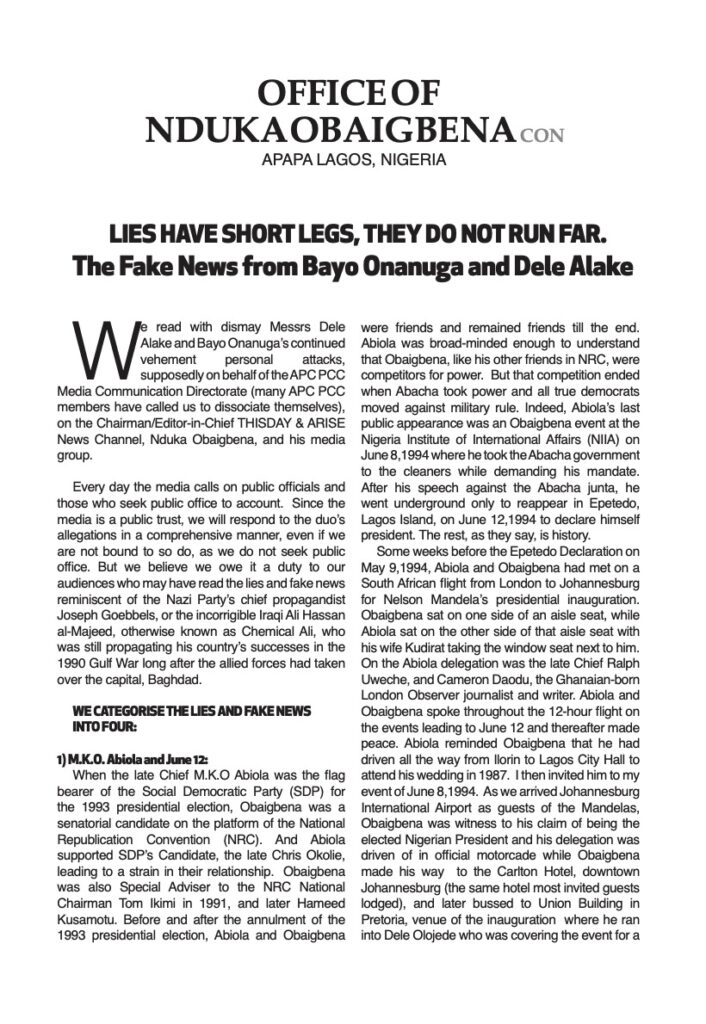Latest Headlines
THE CALM AFTER THE STORM

All tiers of government must deliver good governance if the streets are not to erupt again, writes BOLAJI ADEBIYI
Calm eventually returned early this week. There had been protests on the streets in some states last week. Faceless organisers mobilised angry youths to hit the streets, waving placards protesting the rising cost of living. It was supposed to be a peaceful march to call the government’s attention to the sufferings and pains that arose from President Bola Tinubu’s administration’s economic reforms.
However, the protests escalated, prompting President Tinubu to take swift action. He made two broadcasts within 24 hours, appealing for calm and promising to take further measures to alleviate the hardships caused by the reforms. This proactive response from the President played a crucial role in resolving the protests. While some protesters heeded his call, others remained steadfast in their demands, continuing their agitation until they dispersed on Tuesday.
Perhaps that breather was needed for the President to summon the nation’s elders to the Aso Rock Presidential Villa on Tuesday to discuss pressing matters affecting the country. The Council of State is a constitutional body comprising former heads of state, former chief justices of the federation, the President, the Vice-President, the President of the Senate, the Speaker of the House of Representatives, the 36 state governors, and the Federal Capital Territory minister.
Two ministers, Wale Edun, Finance and Coordinating Minister for the Economy, and Dele Alake, Solid Minerals Development, and the Chairman of Nigeria Governors’ Forum, Abdulrahman Abdulrazak, who is also the governor of Kwara State, briefed Nigerians after the well-attended meeting and said it was informed on the administration’s policies and attainments in the last 14 months and that the elders expressed their satisfaction and confidence in the ability of President Tinubu to turn the nation around the bend towards an inclusive economic development that will benefit Nigerians.
Mixed reactions have expectedly followed the council’s vote of confidence in the President. While some social and public policy critics were disappointed that the council did not acknowledge and appreciate the people’s suffering and dismissed the vote as irrelevant, other more positive commentators took it as a deserved commendation, given the administration’s efforts to revive and stabilise the economy in its short stay in office.
Both sides of the divide have their points. Given the high cost of living, which occasioned the protests, it is reasonable to expect some critique of the implementation of the reform policies that precipitated the hardships that forced the people to take to the streets. That didn’t come from the Council, understandably so. These are former heads of state and chief justices who understand the intricacies of governance, which may create a lag between policy formulation and effective implementation that results in slow delivery of the intended outcome of government programmes.
Contrary to critics’ view, the confidence vote is significant to the Tinubu administration. Given the bent of the protests in the North, where some protesters called for military take-over, and in the South, where the battle cry was #endbadgovernance#, the vote was reassuring for a government that perceived the agitation as an opposition move to oust it through the back door. With this somewhat revalidation of its mandate by the country’s highest constitutional advisory body, the government may have received the boost it needs to take on the opposition even as it mobilises public opinion to support its reform policies.
However, as critics said, no matter the evidence, the government needs to go beyond accusing the opposition of the protests. The high cost of living has hamstrung most Nigerians, who struggle to meet their basic needs. So, the opposition had fertile ground to exploit. What the government needs to do in the circumstances is to pull the rug off the opposition’s feet by removing the basis of the agitations.
In fairness, unlike in the past, the president and his ministers have been very conciliatory in their responses to the agitations. They acknowledge the pains and take time to explain them as the short-term discomfort of the reforms. For the umpteenth time, they rolled out the palliatives that had been put in place to alleviate the pain. More importantly, they have persistently pointed out the incremental gains of the reforms manifested by the positive rating of global rating agencies and the increasing investors’ confidence in the economy. However, the president and his team must go beyond this and recalibrate their delivery mechanism to ensure these positive developments directly impact the people. Certainly, the gains are useless if the people do not feel them in their lives.
One way for the Tinubu administration to move forward is to speed up the implementation of alleviative policies and programmes, particularly for the youth and the vulnerable. The Youth Investment Fund, the Graduate Support Scheme, the National Education Loan Fund, the Investment in Digital and Creative Enterprises, the Consumer Credit Initiative, the Mortgage Fund and the Conditional Grants to Nano Businesses must be ramped up and delivered at a higher speed.
The CNG/LNG initiative is an important component of palliative measures intended to cut the cost of transporting goods and services. It is reassuring that the president has inaugurated 30 CNG-powered buses as a symbolic gesture of the government’s commitment to this initiative. However, there is the need to multiply these quickly and flood the space with conversion kits and centres.
In the meantime, the government needs to abate the perennial petrol scarcity nationwide. What is the matter? For years, the country has witnessed a scarcity of this essential commodity. It was said that the problem was caused by subsidies, which made smuggling outside the country attractive. How come it remained scarce more than a year after the removal of subsidies? The government needs to interrogate this and deal decisively with the problem.
Finally, it is noteworthy that virtually all the 36 state governors attended the Council of State meeting on Tuesday. Abdulrazak, their chairman, briefed on the meeting outcome at the State House, Abuja. He said the governors and the president had an executive session after the council’s parley, where they had very frank discussions. Although he did not expatiate the content of the frank discussions, it is only hoped that it included the need for the governors to complement the federal government’s efforts to cushion the reforms’ negative effects.
Many Nigerians believe, quite correctly, that the governors’ gross underperformance is largely responsible for the widespread discontent among Nigerians. Despite huge funds accruing to the states from the subsidy removal savings, there is very little on the ground to justify the humongous resources flowing into their treasuries from the Federation Account since June last year.
For the calm that has returned to the country after the storm to endure, the government must double up its efforts to bring relief to the people. That can only be assured if all tiers of government act in concert to deliver good governance.
Adebiyi is the media aide to the Minister of Budget and Economic Planning, Senator Abubakar Bagudu

















